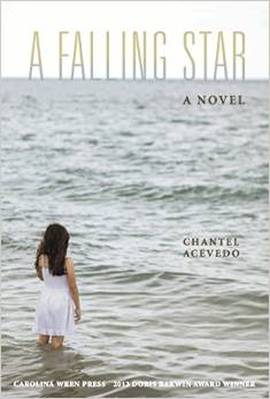 Thank you Chantel Acevedo for inviting me to take up the Chocolate Challenge: three books, three reviews, three types of chocolate. And with my sweet tooth…chocolate is the best way to describe some of the delicious books listed below! You can read Chantel’s take on the challenge on her web page ihola and you can also follow her on Twitter @chantelacevedo. Check out her new novel, A Falling Star, published in August 2014 and her novel, Love and Ghost Letters. DARK CHOCOLATE
Dark chocolate is often described as chocolate that has a somewhat bitter taste to it. Don’t get me wrong, it’s good, but it stays with you long after you consume it. That is why the first book I am going to mention is by the late, great Bebe Moore Campbell, 72 Hour Hold. This book has stayed with me since I first read it in 2005. At the time, I was struggling with debilitating depression, and I stumbled upon this book while trying to find something to distract me from my own struggles and maybe even inform me about some of the concerns I had about my own illness. This book accomplished both. 72 Hour Hold is the story of a mother, Keri, who is trying to come to terms with her daughter, Trina’s, struggles with bipolar disorder. Trina went from being a normal vivacious young person, to becoming a violent, disruptive shadow of her former self. This novel shows the true nature of this disease and how it not only affects the person suffering from it, but also the ones who love the sufferer. The reader gets to see Keri fighting her child, as she fights her ex-husband and a flawed system in order to insure Trina gets the help she needs. The reader witnesses Keri’s overwhelming love for her daughter and her willingness to do anything to get her daughter back. This book is not for the faint of heart. Bebe Moore Campbell doesn’t sugarcoat bipolar disorder and she doesn’t offer any easy solutions, hence the bitter chocolate taste that is left in the reader’s mouth after completing this well-written piece of fiction. It is a tragedy that Ms. Bebe Moore Campbell is no longer with us. Her voice is greatly needed.
0 Comments
I read the article, "MFA or POC" in the New Yorker by Junot Díaz a few months ago when it was first printed, and I felt a genuine sadness for him that his MFA experience was so unfulfilling. I am a graduate of Spalding University's Low Residency MFA program. My experience there was one of support, empathy, respect and encouragement. Now, did I always feel like my work was 100% understood. Of course not. However, I never felt like any of my teacher/mentors or fellow classmates tried to marginalize or invalidate my work because maybe they were not writing about black folks from the rural south. Yes, there were times when I was the only black person in the room, but truly, I never felt like that fact inhibited the discussion.
Sometimes there were more questions in workshop than solutions. The workshop leaders/classmates really sank their teeth into the work being discussed. They challenged their own interpretations. Sometimes people relied on those in the room who are closest to the culture being written about. Often discussions turned to literature that was similar to the work being discussed, but never did I ever feel like my work was not being taken seriously. A lot of my stories are slave narratives written in dialect. Again, no one ever said, "why are you writing in that difficult, hard to understand language?" And to be honest, much to my surprise, fellow classmates and mentor/teachers treated dialect like it was a language, something I never experienced in graduate school before. If anything, people encouraged me to continue to write in dialect, and as a result, I was able to develop my skills in writing this beautiful language in such a way that I can maintain the reverence I feel for it but it also present it in a readable and understandable fashion to my audience of readers. I credit our leaders at Spalding, Sena Jeter Naslund, Kathleen Driskell, Karen Mann and Katy Yocom, for making it clear that the workshop is designed to encourage the writer whose work was being discussed and not tear down the writer or leave that person feeling abused and unvalidated. Now that does not mean we didn't have some intense discussions and disagreements at times, but at the end of the day, we realized our competition, as so eloquently stated by Sena, "was not in the room but in the library and bookstores." I never felt the uber competitiveness at Spalding that I've heard other MFA grads from other schools talk about. Even now, the vast majority of my community of supporters and friends are my Spalding classmates/mentors/teachers/leaders. So, I said all of that to say, research closely the MFA programs that are out there. Don't just take for granted what their materials say. And don't pick a school just because your favorite writer teaches there. Go visit them. Ask if you can sit in on a workshop or lecture. Talk to graduates/current students/teachers. Most times, they will tell you the truth. And of course, I would love for you to check out Spalding. My life changed radically when I walked into the MFA office at Spalding, not really sure if being a writer was still a viable option for me. Karen Mann made me believe that day that not only was my dream possible, but she was going to do everything in her power to support it. And I found this to be true for everyone else I encountered at Spalding. If you would like to find out more about The Spalding low residency MFA in Writing Program, click here. BIO: Angela Jackson-Brown is an award winning writer and poet who teaches Creative Writing and English at Ball State University in Muncie, IN. Her work has been widely published in journals like The Louisville review, New Southerner Literary Review and 94 Creations, to name a few. She is the author of, Drinking From A Bitter Cup, and is hard at work writing her second novel. 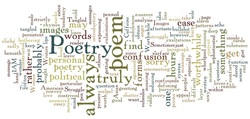 Sometimes, trying to push out the words of a new story or poem is just like trying to push out a newborn. The words get stubborn and comfortable inside the mind where they've been gestating for days, weeks, months, sometimes years. They cling onto the notion that they are safer if they stay wrapped up inside the uterus of the writer's mind. So, sometimes we writers need a literary midwife or two or three to coach us and coax that baby out. Somebody who'll stay with us and that story 'til the birthing process is done. Somebody who'll say, "Daughter, let those words go. Ain't you tired of carrying that full-term baby around in your belly? You are? Then bear down, baby. Bear down and push that baby out." I am in the wonderful, scary space of completing my second novel. The bearing down and pushing out of the words has, at times, been difficult, but thankfully, I have a village of literary midwives who are constantly encouraging me and pushing me to birth this baby out. So, today, I honor them. They know who they are. Love. 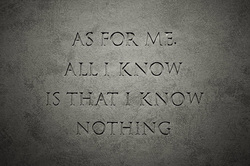 “Why would you, an African American writer, bother to write a story from the point of view of a white male when the world needs more stories written about black people by black people?” was the question asked by a well-meaning white professor during a creative writing workshop I took many moons ago. I got this lecture after she returned my short story to me – not a single comment except “See me after class.” I stood looking at her for a moment. The room was empty. Just the two of us. She was a young woman herself. New to teaching. New to publishing – she had published a few poems and short stories, but that was about it. She was full of righteous indignation. A northern whirlwind, intent on “saving” her one African American student who had the unmitigated gall of writing about something other than “the black experience.” My response to her came from my own place of righteous indignation. “I bothered to write about a white male character because I can.” Then, I symbolically threw down the microphone and walked off. Okay, I was twenty-something. Tact, and perhaps, patience were not really in my DNA yet, although thinking about the “me” I’ve become, my response would probably be the same, but this time, I would offer an explanation for my answer, and it would go something like this: I am a writer. I happen to be African American. I happen to be female. I happen to be southern. I happen to be a mother and a wife. Hell, I happen to be a pescetarian who desperately craves barbecue ribs at times. Does that mean I should only focus on stories that involve those types of characters? I think not. Now, that doesn’t mean those types of characters don’t interest me, it just means I am of the mindset that a writer should never place creative limitations on herself. The chances are very good I will write mainly stories that involve African American characters. The chances are equally as good that most of my stories will take place somewhere in the rural south. However, I would not swear on it. Tomorrow, I might decide to write about a young Vietnamese girl who writes love notes for American G.I.s to send back to their girlfriends who are stateside. As a writer, that is my right. I go where my imagination takes me, and sometimes, where I end up, even shocks me. I would not want to live in a world that didn’t have Eudora Welty’s short story “A Worn Path.” Yes, Welty is white, but the way she depicted the love the grandmother in the story felt for the young grandson who had trouble swallowing transcends race. It didn’t matter that Eudora wasn’t an old black woman writing from her own experiences. It just didn’t matter. I can’t imagine studying southern fiction, and not being able to read Faulkner’s depiction of Dilsey in The Sound and the Fury. I can’t imagine believing that character any more than I did if the writer had been black. And how would we talk about the antebellum south and the slavery resistance movement in the north if we didn’t have Harriet Beecher Stowe’s Uncle Tom in Uncle Tom’s Cabin? Now, the problem occurs when writers get lazy. We could probably talk all day about how Stowe’s depiction of Uncle Tom was fraught with stereotypes and misrepresentations. I could go on and on for days about contemporary writers who have "assumed" they understood another culture and wrote with wild abandonment about that culture in ways that were equal parts gross and unconscionable. So, a conscientious writer cannot assume. If a writer, regardless of ethnicity, gender, socio-background, etc., wants to writer about Others, then just like they wouldn’t dare to write about 17th Century Japanese culture without doing a ton of research, the same is true when writing about a different ethnic or gender group. When I first started contemplating, Jimmy Earl, the 16 year old white male narrator in my upcoming novel, I immediately called my friend Rob Gray (It has been years now since that conversation, but it really shaped how I think about this subject). Rob is male and he has lived the majority of his life in the south. But more than that, he and I have the type of friendship that no question is off limits. I knew I could ask ridiculous questions and get a thoughtful response. And I did. I asked him everything imaginable. I didn’t assume I understood how a white male might think in certain situations. I asked questions and I continue to ask questions. When writers do this, they are free to explore EVERY situation and EVERY circumstance. Writers can write about anything and everyone. But we have to treat our characters with the same respect we do those details we automatically look up like what day did the Fourth of July fall on in 1936 (Saturday, by the way). As I mentioned above, we would not assume that we understand the behavior and attitude of someone born in the 17th century in Japan, so we have to operate with the same mindset when we write about other ethnic groups who we may think we know, but in fact, we have no clue. I know a lot about what it means to be an African American woman, but when I wrote a story called “Shaken” that is told from the point of view of an 18 year old African American male, I went to my son and asked his advice. I didn’t assume that I knew anything, and by assuming I knew nothing, I was open to everything my son had to say about my story (and he had quite a bit to say). “Mom, we (meaning his generation) don’t say things like that anymore. That is so 1990.” “No, a guy would never say/do/think that.” I love it when my white students come to me and ask, “does this sound like something a black person would say or do.” Now, I assure them that I can’t nor do I want to speak for all black people (that is another discussion for another day), but I am gratified that they at least recognize their limitations. I am pleased that they “get” the fact that we aren’t all the same. I celebrate their understanding that unless you’ve walked in someone’s shoes you really are clueless to their experience even if you were walking right beside them the whole way. So, to all writers I say, write what interests you. Just make sure you do your research. Assume you know nothing, which then allows you to be a wide open vessel, open to receiving all sorts of information about the human condition of others. 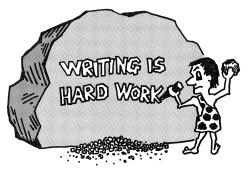 I'm working on my second novel, and right now, I am writing a scene involving the Ku Klux Klan and a soon to be burned down chicken coop full of chickens. Right now, I feel tortured by the writing. I both want to run to it, and run away from it. Writing is HARD. Don’t let anyone tell you different. Sometimes, I wonder why I put myself through this process. Don’t get me wrong, I love being a writer, but it can wreak havoc on one’s mental state. There are times when the writing seems to be pushing me to the edge. It is no wonder to me that many writers turn to the bottle and other coping mechanisms. When I wrote some of the tougher scenes in my debut novel, Drinking From A Bitter Cup, I had to mentally prepare myself for some of the more graphic moments involving my young heroine, Sylvia Renee Butler. I loved that little imaginary girl and as her creator, I wanted to step in, and “fix” her life. I wanted her mother to stay and not abandon her, but writers have to honor the story. Once the story starts to reveal itself to us, we have no choice but to write the story the way it was meant to be written. If we don’t, the story will come across as contrived and boring. Readers can tell when you don’t write the story the way it was meant to be written. The characters come across as weak and cookie cutter. The prose sounds flat. The scenes feel forced and uninteresting. Real writers go into the deep because there is where the story exists. The trick is to not stay there. The trick is to be able to separate these characters and their world from the world that is made up of our family, friends, job, etc. When writers go in to the depths of a story...and I mean, really go in...they are often left feeling like a puddle of water on the floor, when it is all said and done. Below is one of the pieces of dialogue from my next novel that has left me tossing and turning at night, but I knew when I typed those words, they were the words the character HAD to say. “Hey in there. Y’all niggers come on out,” a loud male voice yelled. “We about to make y’all some fried chicken. We know how much you darkies love yourself some fried chicken.” Typing those words broke my heart. In my mind I questioned myself. I asked myself, How can you put your characters through such pain and degradation? My response was simple: Because I have to. Writing in the deep is not easy. New York Times and Times of London bestselling author, Raymond E. Feist, says: “Writing is hard work; it’s also the best job I’ve ever had.” I have to say, I concur. 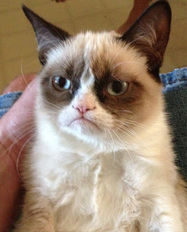 "No, I'm fine. Why do you ask?" "No, I'm fine. Why do you ask?" Today, I am not having a fun time being writer. In fact, most of this week hasn’t been fun. Why, you ask? Well, instead of working on my next novel or having imaginary conversations with Gayle and Oprah about my book, I have had to put aside my creative hat and focus on my marketing hat. I have made 15 phone calls to bookstores about possible book signings. I have sent out over 50 emails to book stores, book clubs, book reviewers, and members of the press about the release of the book and upcoming events. I have visited half a dozen bookstores and I have given out tons of flyers and postcards. I have made posts to Facebook and Twitter urging my family and friends to write reviews and post them to Amazon, Barnes and Noble, Books A Million and Goodreads. And I’m not even counting all of the hard work my husband Robert and other friends have done to try and get the word out. Whew. No one said this writing thing went beyond sitting at a comfy desk with a nice mug of tea while the writing muse has its way with me. Okay, okay. Before you say, “Blah, blah, blah, stop complaining. Wasn’t this your dream?” Let me just say, yes, you are right. But it doesn’t change the fact that this part of the process is not fun. I am an extroverted introvert, meaning, I can turn on the charm when I have to, but in all honesty, a great day to me is a day when it is just me, my muse, and my keyboard. Making phone call after phone call where I have to spark enthusiasm in the hearer on the other side of the phone is not my idea of a good day, hence why I never went into sales. I was teasing a friend the other day when I said I have heard everything this week but “It’s not you. It’s me,” when I called various bookstores trying to set up book signings. Nobody told me that most bookstores are not interested in granting signings unless you are already well-known. Whodathunk? It’s like being back in the day when I was a new job hunter and I couldn’t get a job because I didn’t have a job. But you know, in spite of that fact, those of us who write and publish can’t give up. Even if 9 out of 10 people turn us down and make us feel like our life’s work is not much more than a blip on the radar screen of publishing, we can’t give up. Why? Because of that one success, and yes, that one success matters. So, here are some tips to writers who are interested in publishing: 1. Make sure you spend some time building your presence on social media. Promoting your work becomes a little easier when your friends, family and colleagues are also helping to get out the word. 2. Get ready to be a cheerleader for your work. If you are too timid to shout about your work from the rooftops, you have probably selected the wrong career path. Yes, there are authors who write in isolation and never interact with the public and somehow find a way to get their work to its intended audience, but really, those writers are few and far between. Make sure you enter into the publishing process believing you will have to do most of the heavy lifting when it comes to marketing your work. Even those who publish with the large presses are finding themselves having to utilize their skills as marketers to plug their work. 3. Get organized. I have half a dozen templates of letters, emails, press releases, etc., so when I find a new outlet to send material to, all I have to do is tweak my template and then Voila!, it is off to my new potential resource without me having to spend hours recreating the wheel. 4. Schedule your day so that you are not trying to market your work and write creatively in the same time and space. There is nothing that will suck away your creativity more than knowing you have to send off press releases, type up mailing envelopes, or talk on the phone with individuals who might be lukewarm, at best, when it comes to talking to you about your work. 5. Delegate or ask for help. Once you are in publishing mode, you need a team – a team of unpaid (or paid if you roll like that) “staff” who can take some of the burden off your shoulders so you really can spend more time being creative. As I’ve said repeatedly, my husband has been my rock throughout this entire process so far. My great friend, Lauren, who has hosted an event, helped with the copy editing, and sent out reviews and press releases, has been invaluable in this whole process, and daily, I am asking her to do more and more. So, whenever people say, “Is there anything I can do to help you publicize your work,” take them up on their offer! Get them to make phone calls. Get them to send out books for review or press packets (to those who still want hard copy packets). Get them to show up at your readings and help with all of the behind-the-scene duties that will overwhelm you on the day of your signing. So, I offer you writers this advice, not to discourage you but to prepare you for those days when the writing life just doesn't seem rewarding. When literally and figuratively you are getting doors slammed shut in your face and you say to yourself, "But I have an ISBN number. Ain't I a writer too!" Just remember, unless you are already Alice Walker or Toni Morrison or any of the other rock stars of publishing, don’t expect the red carpet to automatically be rolled out to meet you at every venue you imagine yourself reading in. Unless you are a literary giant already, don’t expect the New York Times to come knocking down your door to do a book review for your book. Instead, go into this publishing thing like it is truly a business venture that in the beginning, there may not be very many individuals believing in your work besides you and your good old Aunt Susie. And that is okay. Just make sure you help Aunt Susie learn how to send a tweet, because, really, initially, she might be all you’ve got. Now, back to marketing my book. Oh, and by the way, do any of you have Oprah on speed dial? Okay, okay! Just asking. Sheesh! :) 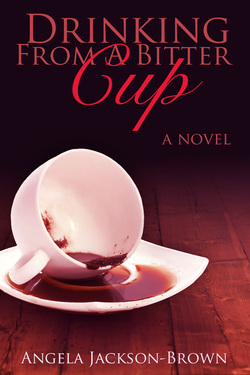 Don't forget to join me today as I discuss DRINKING FROM A BITTER CUP with DuEwa Frazier on her radio show, Rhymes, Views & News Talk Radio ! The show begins at 1:00 pm EST. Click here on the link to take you there! See you on the radio! If you would like to buy a copy of DRINKING FROM A BITTER CUP, go to Amazon, Barnes and Noble, or Books A Million. 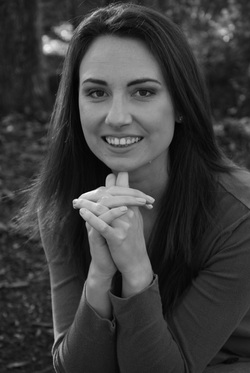 WiDo Publishing author, Jadie Jones, has recently released her first novel entitled Moonlit. Jadie lives with her family in the foothills of North Georgia. She has a degree in equine business management from St. Andrews University, and she is currently training horses, coaching several competitive riding teams, and working hard on the next installment of her series, featuring her spunky and charming main character, Tanzy Hightower. 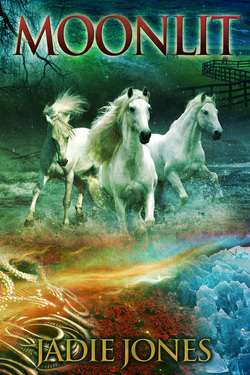 Story Synopsis Eighteen-year-old Tanzy Hightower knows horses, has grown up with them on Wildwood Farm. She also knows not to venture beyond the trees that line the pasture. Things happen out there that cannot be explained. Or undone. Worse, no one but she and the horses can see what lurks in the shadows of the woods. When a moonlit ride turns into a terrifying chase, Tanzy is left to question everything, from the freak accident that killed her father to the very blood in her veins. Broken and confused, she turns to Lucas, a scarred, beautiful stranger, and to Vanessa, a charming new friend who has everything Tanzy doesn’t. The question then becomes, why do they seem to know more about her than she knows herself? INTERVIEW Hello, Jadie. Thank you for doing this interview with me. One thing I always wonder about fellow authors is do they have specific writing “ritual” to get them into the mindset to write. Do you have any such rituals? Thanks, Angela. I really like to have a cup of hot tea within an arm’s reach, especially during drafting. I also work best in stretchy pants. Seriously. I lean forward a lot when I write and wearing real pants just won’t do. I also like to have an empty picture frame somewhere near my computer. I got the idea from a piece of writing advice Anne Lamott gives in her book Bird by Bird. This ritual helps me focus if I get stuck. Jadie, it is clear that you are a talented young writer. You write with a confidence not often seen in newly published writers. I’m just curious; who are some of your favorite writers? Amy Greene, Walter Farley, and Anne Lamott, to name a few off the top of my head. When a writer’s voice comes from an honest, simple place, I fall in love and will follow them anywhere. Of course the question everyone wants to know the answer to is where did you get the idea for your novel, Moonlit? I took a head-dive off of a horse and wound up with a pretty good concussion. When I went to sleep that night, I dreamt of an underground chamber in ancient Egypt where a band of dark headed girls was guarded by burly, half-dressed men. I had the distinct impression that the girls made the guards very nervous, and then one of the girls turned and looked straight through me, as if to say: tell our story. I started penning the first draft that afternoon. What part of the novel came to you first – the characters or the plot? The character has been a voice in my mind for a long time. It just took me a while to find a journey she’d agree to take. And then I had to figure out how to get my down-home farm girl to ancient Egypt… The question authors are always asked is how much do certain characters resemble them, so I will ask the question of you…how much of Tanzy, your novel’s protagonist, is you (if any part)? The horse-girl aspect is something I draw from personal experience. I started working at a horse farm when I was twelve, cleaning tack and scrubbing buckets, etc. Once I turned sixteen and could drive myself, it was not uncommon for me to be out there alone either blanketing horses on cold nights, or checking on a sick horse. I also liked to arrive before anyone else because I enjoyed the quiet and could get more done. Predawn at a barn is the most peaceful place on earth. I’m also admittedly headstrong and can react before I think something through. Those traits show up in Tanzy as well. Now that I have finished reading Moonlit, I am ready for book two of your trilogy. How far into the writing process are you with the other two books? I am currently editing the sequel in hope to submit it to WiDo Publishing in May. I’m still unearthing some key factors in the sequel. They make themselves known to me only once they’re sure I’ll know what to do with them. I know what I want to accomplish with the third and final book, but I’ve learned to stay very open minded and flexible when it comes to Tanzy Hightower. She’s a force of nature. Well, Jadie, I wish you much success on this day—YOUR BOOK RELEASE DAY. I am sure that Moonlit will have a tremendous amount of success. I look forward to reading all of your work to come. If you would like to learn more about Jadie Jones, please meander over to her website. Click here. |
Archives
March 2021
Categories
All
Blog Roll
|

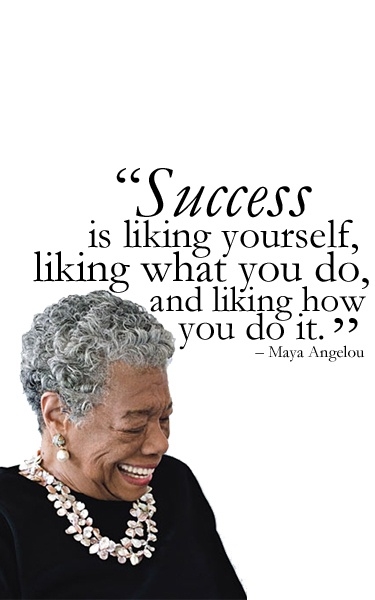
 RSS Feed
RSS Feed







